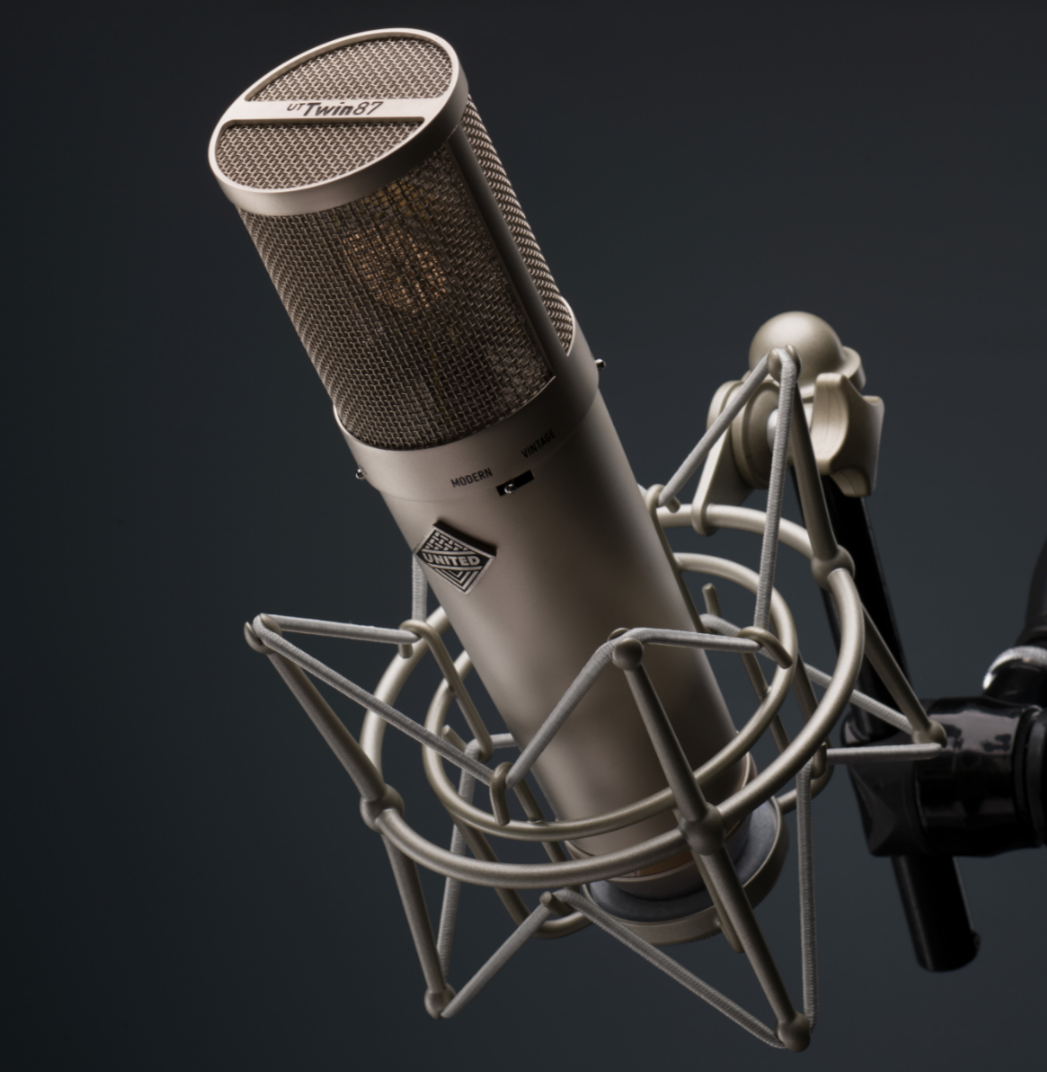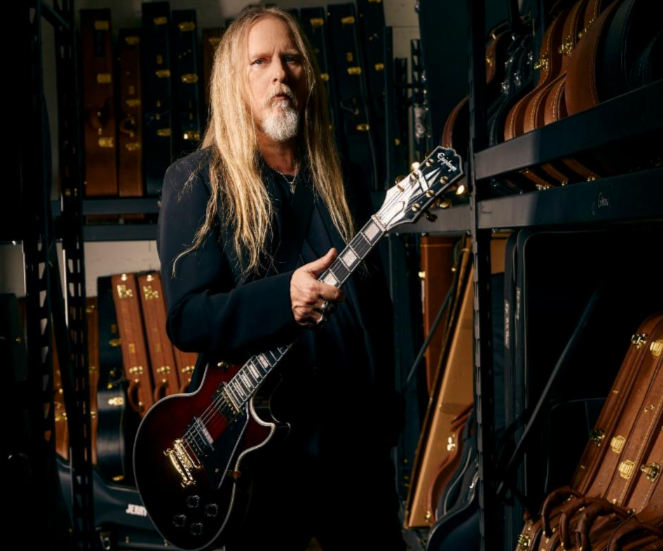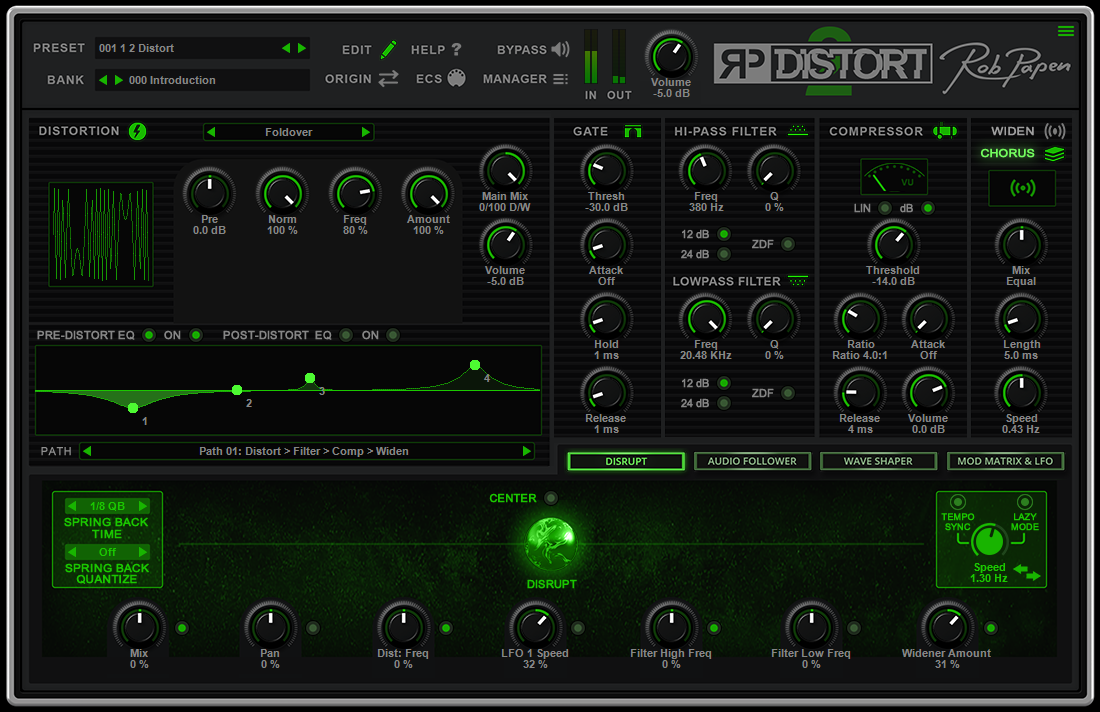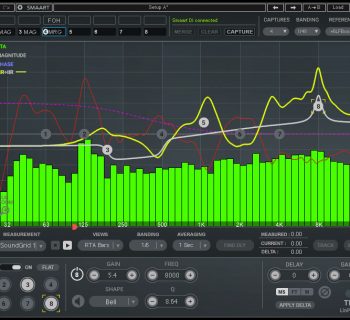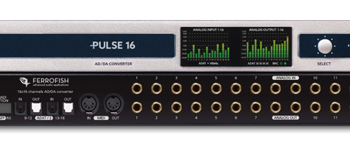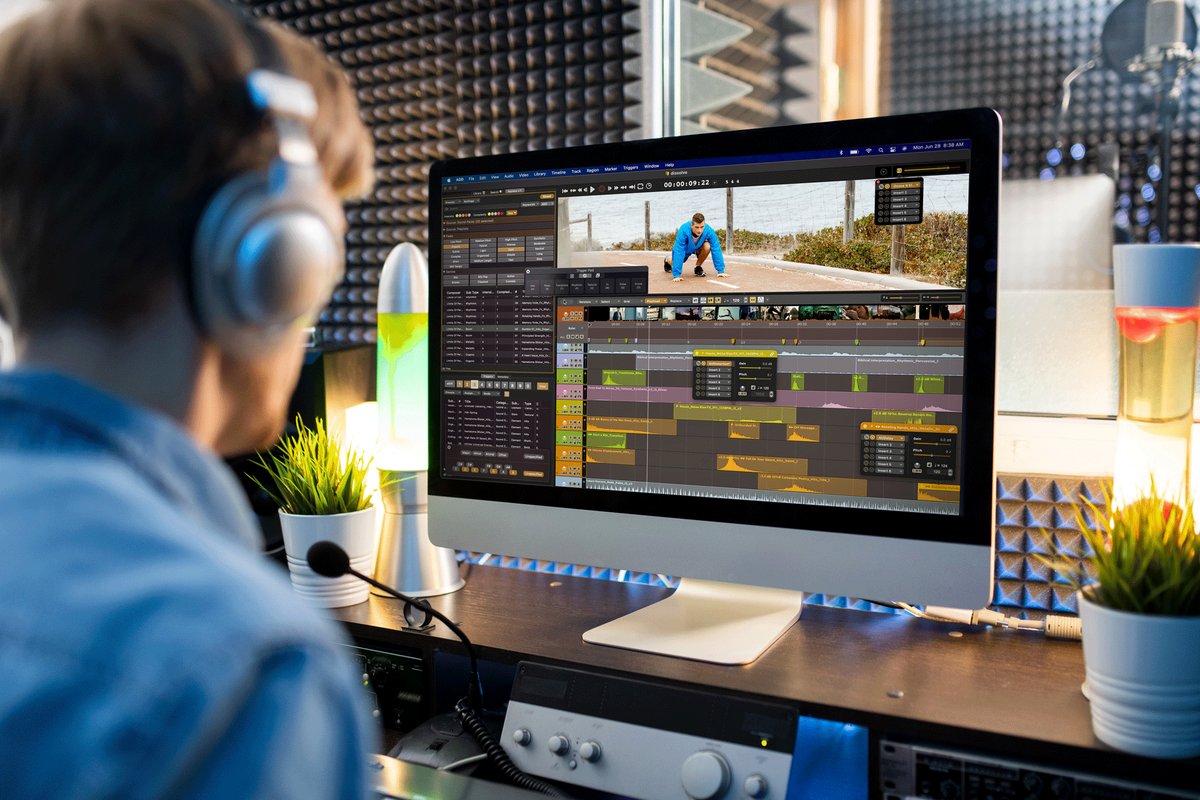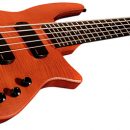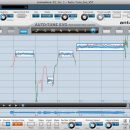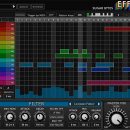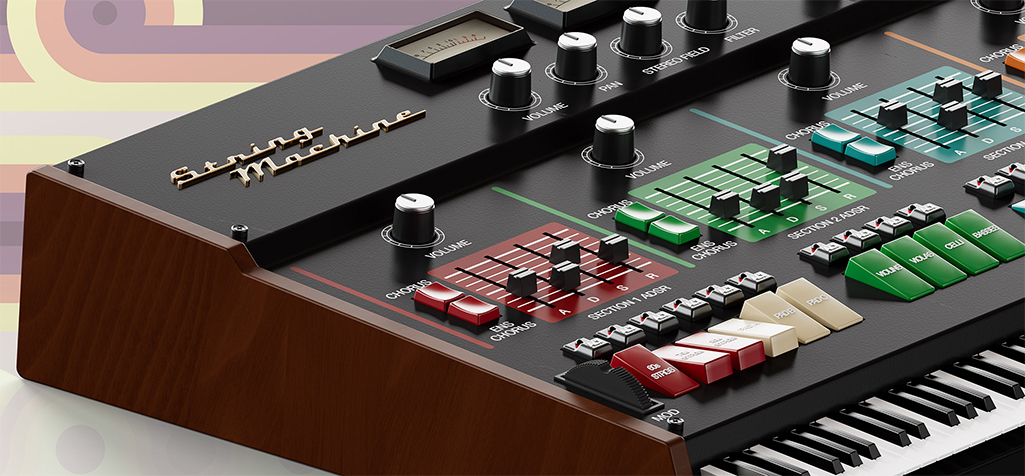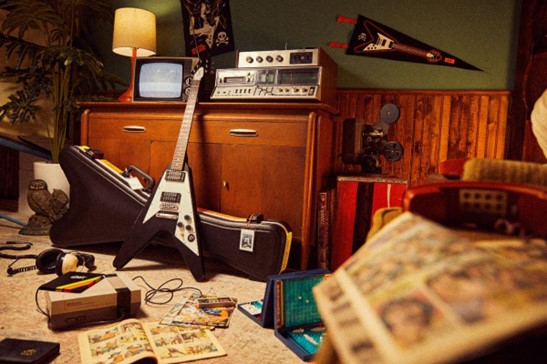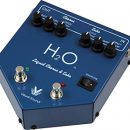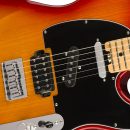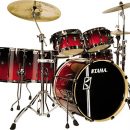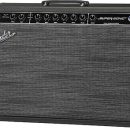 UT Twin87 captures essence of original classic and modern incarnations of ‘87-style’ microphone design
UT Twin87 captures essence of original classic and modern incarnations of ‘87-style’ microphone design
BATON ROUGE, LOUISIANA, USA: United Studio Technologies is proud to unleash UT Twin87 to capably capture the essence of both the original classic and modern incarnations of the ‘87-style’ microphone design — duly creating a must-have microphone that duplicates both circuits, capable of being reconfigured on the fly for the first time ever, affording anyone an exceptional reproduction of the sonic qualities of both microphones by literally toggling between two discrete ‘87-style’ circuit topologies separated by nearly half a century to effectively end the vintage- verses-modern debate in an instant — as of April 28...
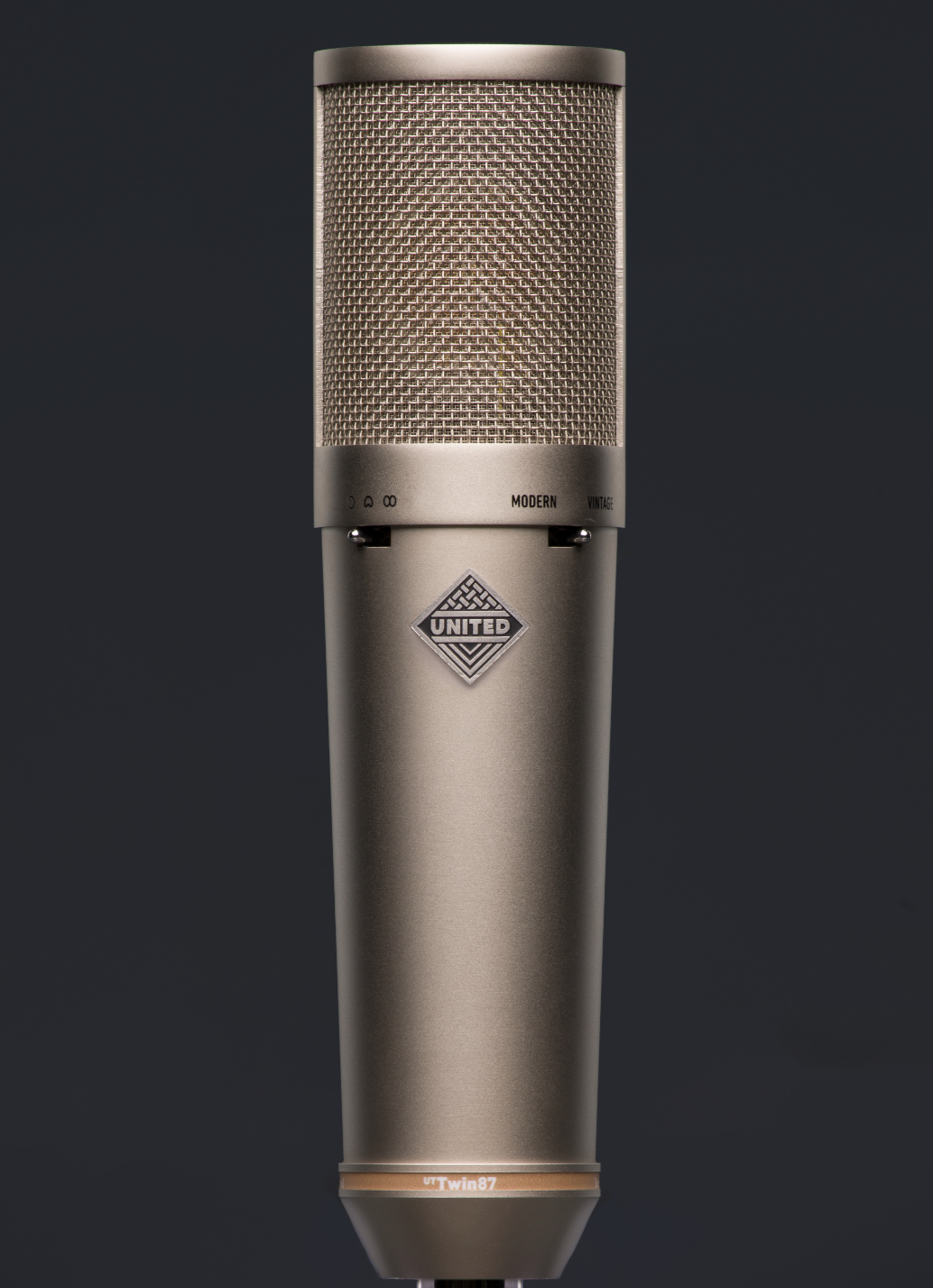 Unsurprisingly, United Studio Technologies took time bringing UT Twin87 to market — mere ‘EQ/boost’ circuitry or digital gimmickry would not cut it. Instead, component values, types, and circuit differences between ‘golden reference’ specimens of the very earliest available microphones of this style and some of the latest revisions produced were meticulously measured; variations were subsequently studied, documented, and audible differences teased out.
Unsurprisingly, United Studio Technologies took time bringing UT Twin87 to market — mere ‘EQ/boost’ circuitry or digital gimmickry would not cut it. Instead, component values, types, and circuit differences between ‘golden reference’ specimens of the very earliest available microphones of this style and some of the latest revisions produced were meticulously measured; variations were subsequently studied, documented, and audible differences teased out.
As a result, UT Twin87 features United Studio Technologies’ UT-K87 capsule, a custom-made K87-style, dual-diaphragm/dual-backplate affair that is precision milled from brass, skinned with 6 μm (micron) Japanese Mylar — a polyester film made from stretched PET (polyethylene terephthalate) — in a laboratory-clean room environment, and has a 24k gold-sputtered membrane. Capably capturing the essence of both the original classic and modern incarnations of the ‘87-style’ microphone design comes courtesy of the twin circuit topology involved. In VINTAGE mode,UT Twin87 polarizes its capsule directly by normal (+ 48V, optimal) phantom power voltages, taking advantage of an insulated dual-backplate design — as was the case with the earliest ‘87-style’ microphones. Meanwhile, the Hi-Z (high impedance) and de-emphasis circuitry use all of the same component choices as the original, yielding a slightly warmer, softer, and forgiving sound. Switching UT Twin87 into MODERN mode polarizes its capsule at a higher voltage using a FET (Field- Effect Transistor) oscillator circuit — as found on later revisions of the classic mic, making for higher sensitivity that feeds a hotter signal into the amplifier circuitry. And, again, the Hi-Z and de-emphasis circuitry use all the same component choices as much later ‘87-style’ designs, delivering a louder, slightly brighter, and more articulate response, with an extended top-end reach and more ‘up-front’ character.
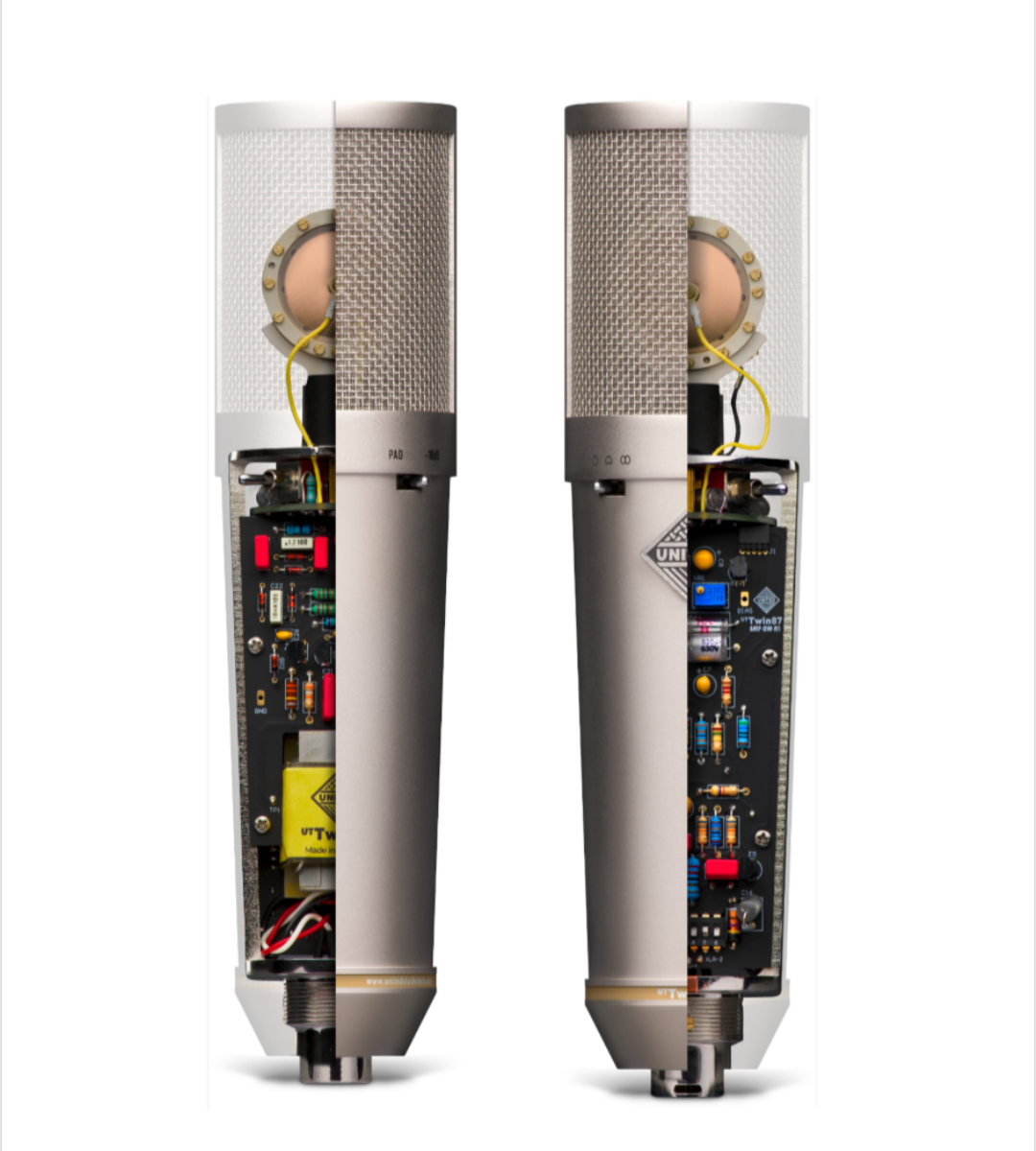
Custom capsule capabilities notwithstanding, many iterations of the original German output transformer used in this type of microphone were also assessed with some of the older, larger frame designs proving particularly inspirational in doing so. Since the size of a transformer can sometimes be a limiting factor, United Studio Technologies then developed its own custom-wound transformer built with large, all-nickel laminations resulting in almost four times the metal mass found in any existing ‘87-style’ microphone. Moreover, this part positively ensures that there are no bottlenecks or weak links in the design, so nothing is lost in translation as the signal is passed out of the microphone and down long cable runs.
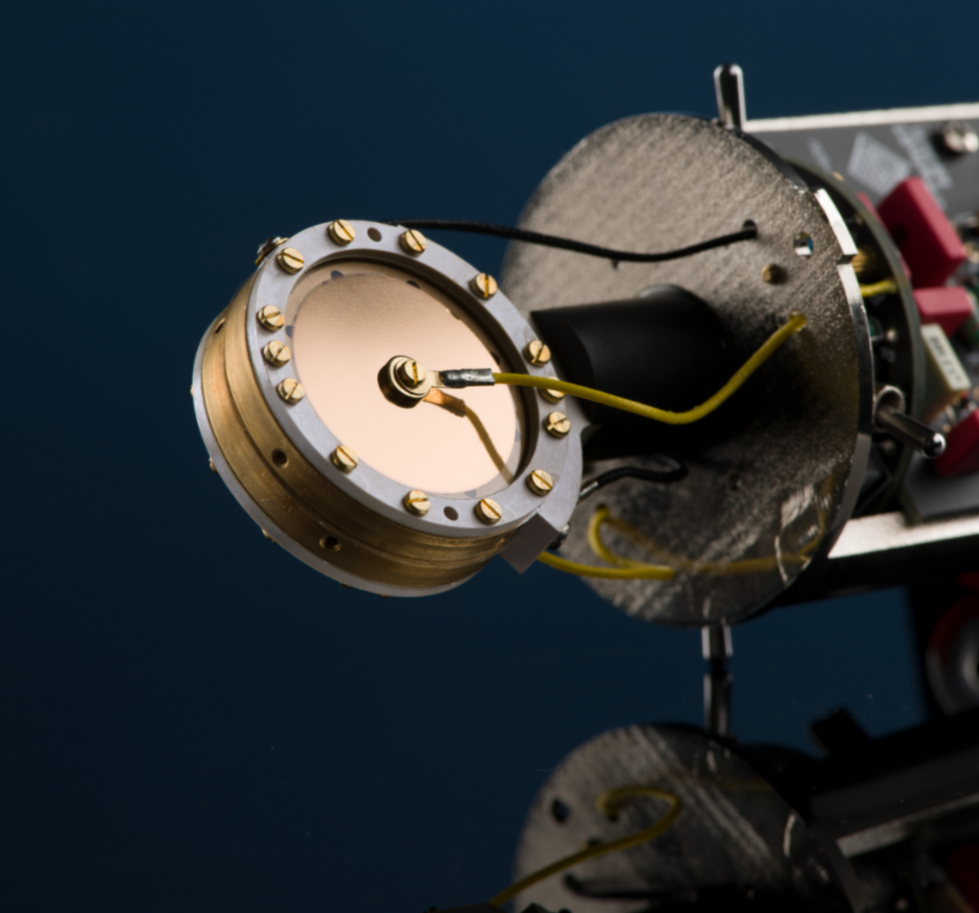
Most modern ‘87-style’ microphones incorporate an output filter designed to block RF (Radio Frequency) and FM (Frequency Modulation) interference, influencing much debate over the years as to whether this filter enhances or harms the sonics of the microphone concerned. Clearly, United Studio Technologies has effectively ended this debate, since its HPF (High-Pass Filter) can be engaged/disengaged at any time, whether working in VINTAGE or MODERN mode.
It is well worth noting that another boutique modification — the so-called ‘true-cardioid mod’ — is quietly engaged when switching UT Twin87’s polar pattern to cardioid, whereby it will disengage the pattern select circuitry altogether and decouple from the rear diaphragm of the capsule to provide a cardioid function that is slightly hotter, more pure, and boasts a better signal-to-noise ratio, rather than operating in an active (switched) cardioid mode as per the standard design.
An assortment of selected premium components — such as polystyrene, tantalum, multilayer ceramic, WIMA film capacitors, metal and carbon fit resistors, and hand-selected transistors — collectively play a significant part in making UT Twin87’s stellar specification what it is, with some notable numbers on offer: 20 Hz - 20 kHz (frequency response); 117dB — no pad, 127dB — with pad (SPL @ 5% THD); 27Ω(output impedance); <10dB — cardioid setting, no pad, no HPF(SPL); 80 Hz — 12dB down point (High-Pass Filter); and -10dB (pad).
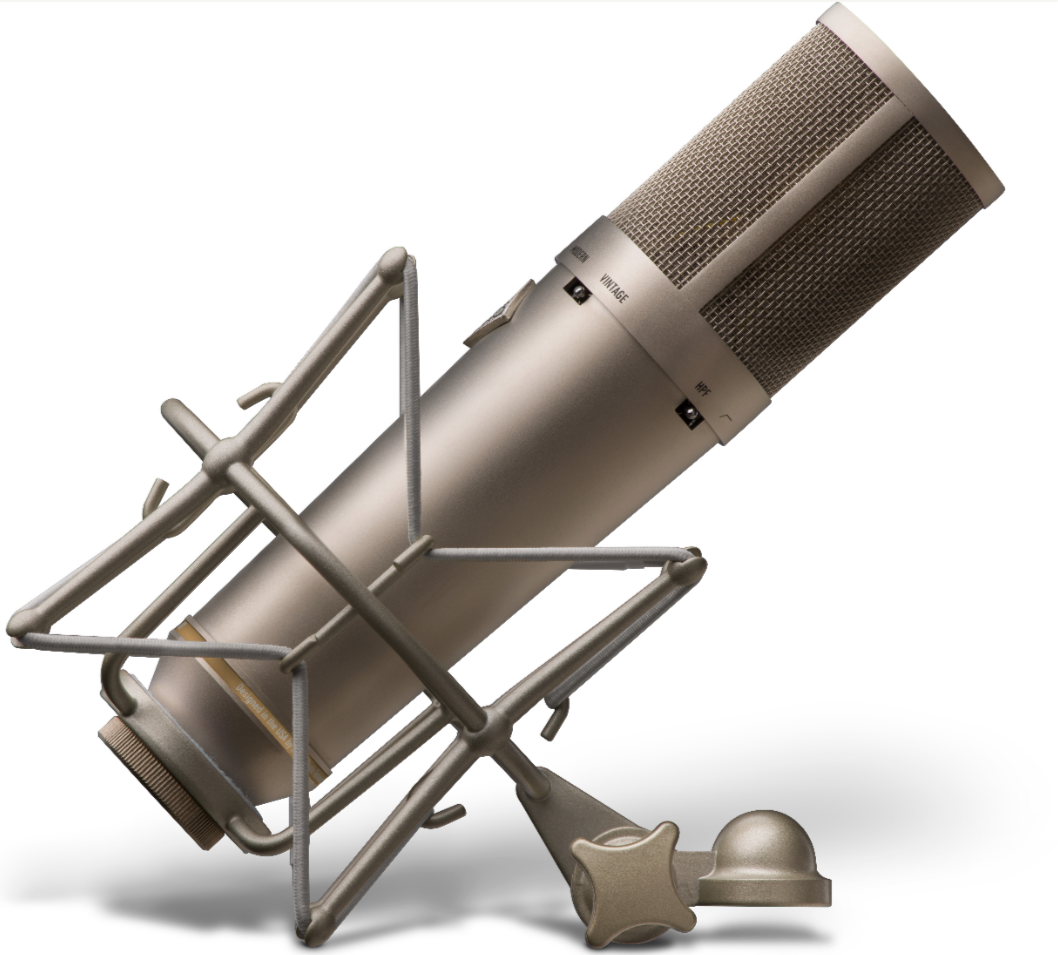 Put it this way: with its extra features and high-end components, UT Twin87 is indisputably an exceptional microphone to behold. But its real strength is its accuracy in providing the same sound that engineers have grown to love in every variation of the ‘87-style’ circuit, capably capturing the essence of both the original classic and modern incarnations as a must-have microphone capable of being reconfigured on the fly for the first time ever.
Put it this way: with its extra features and high-end components, UT Twin87 is indisputably an exceptional microphone to behold. But its real strength is its accuracy in providing the same sound that engineers have grown to love in every variation of the ‘87-style’ circuit, capably capturing the essence of both the original classic and modern incarnations as a must-have microphone capable of being reconfigured on the fly for the first time ever.
The time that United Studio Technologies spent bringing UT Twin87 to market is clearly time that has been well spent, as the raft of recordings that will surely be made with this exceptional microphone will truly testify for many years to come.
Pricing and Availability:
Distributed worldwide by RAD Distribution (http://www.raddist.com/), UT Twin87 is expected to ship before the end of May 2022 with a MAP (Minimum Advertised Price) of $699.00 USD and an SSP (Suggested Selling Price) of €699.00 EUR (including VAT).
For further information, please visit the dedicated UT Twin87 webpage here: https://unitedstudiotech.com/en/products/ut-twin87

